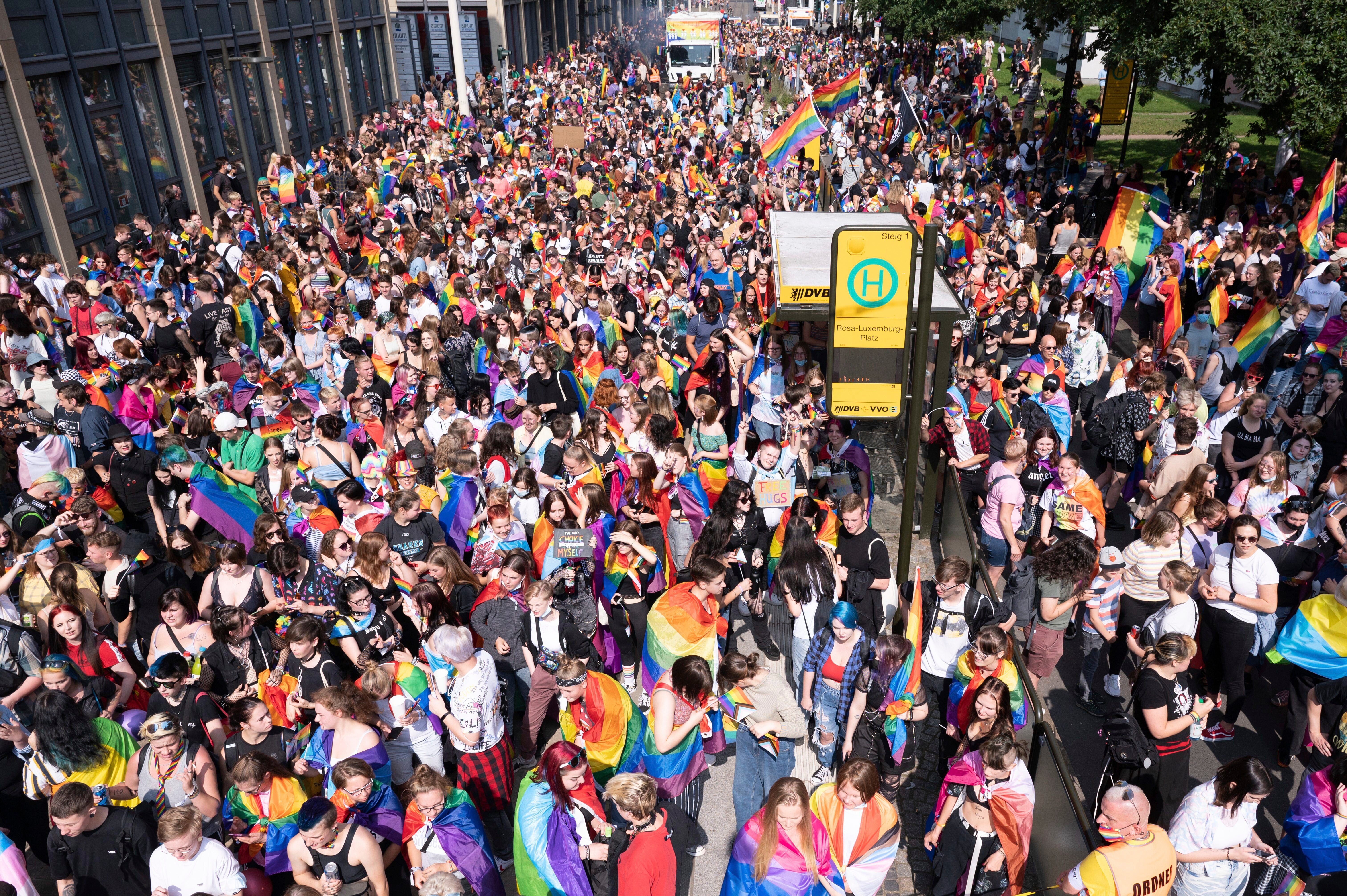Germany compensates 249 people persecuted under Nazi homosexuality law
Over 68,000 men were convicted under the law first introduced in the 19th century

Your support helps us to tell the story
From reproductive rights to climate change to Big Tech, The Independent is on the ground when the story is developing. Whether it's investigating the financials of Elon Musk's pro-Trump PAC or producing our latest documentary, 'The A Word', which shines a light on the American women fighting for reproductive rights, we know how important it is to parse out the facts from the messaging.
At such a critical moment in US history, we need reporters on the ground. Your donation allows us to keep sending journalists to speak to both sides of the story.
The Independent is trusted by Americans across the entire political spectrum. And unlike many other quality news outlets, we choose not to lock Americans out of our reporting and analysis with paywalls. We believe quality journalism should be available to everyone, paid for by those who can afford it.
Your support makes all the difference.Almost 250 people have been compensated by German authorities for investigations or prosecutions under a Nazi-era law that criminalised homosexuality and continued to be enforced after the Second World War.
Germany’s Federal Office of Justice said on Monday (13 September) that 317 people had applied for compensation and it had paid out compensation in 249 cases, by the end of August.
So far, €860,000 (just over £732,000) has been paid out to claimants.
Currently, 14 applications are still being processed, whilst 18 were rejected, and 36 withdrawn, the office said.
In 2017 German lawmakers approved the annulment of thousands of convictions under the Paragraph 175 law, which remained in place in West Germany until homosexuality was decriminalized in 1969.
The compensation also applies to men convicted in communist East Germany, which had a milder version of Paragraph 175 and decriminalized homosexuality in 1968.
This compensation scheme offered payments of €3,000 per conviction and €1,500 for every year of jail time under those convictions.
The compensation was further extended in 2019 to allow people who were under investigation or taken into investigative custody but not convicted, to make compensation claims.
This offered €500 per investigation opened, €1,500 for each year in pre-trial custody and €1,500 for other professional, financial or health disadvantages relating to the law.
The controversial law was first introduced in the 19th century but was further toughened under Nazi rule remaining in its same format under West Germany. The law, specifically against gay men, convicted up to 50,000 men between 1949 and 1969.
In 2000, the German parliament approved a statement regretting the retainment of Paragraph 175 after the war. Two years later, it annulled the convictions of gay men under Nazi rule, but not the post-war convictions.
In total 68,300 people were convicted under various forms of Paragraph 175 in East and West Germany.
The deadline to apply for the compensation is 21 July 2022.
Join our commenting forum
Join thought-provoking conversations, follow other Independent readers and see their replies
Comments